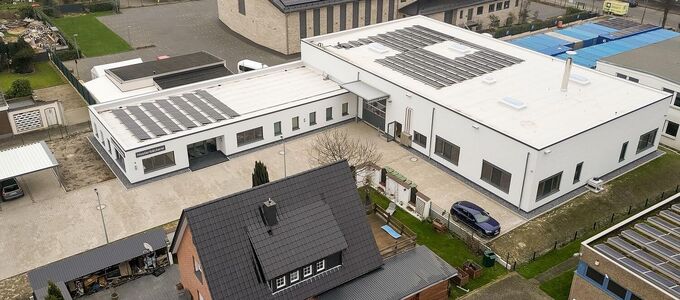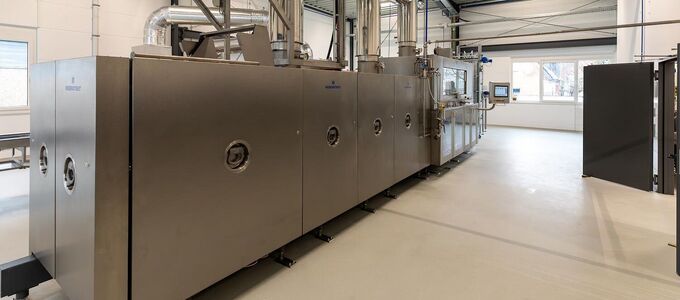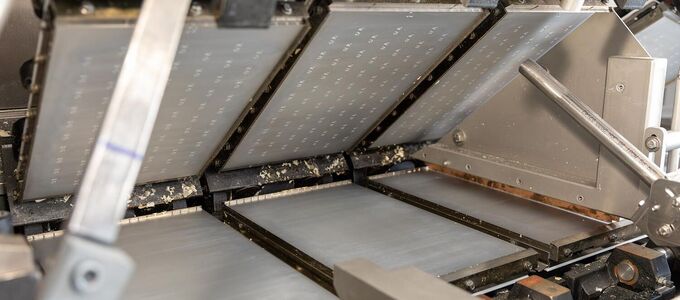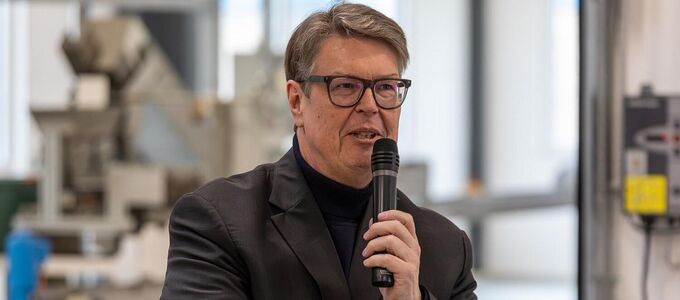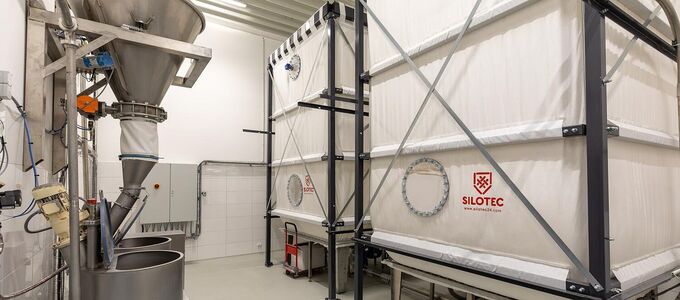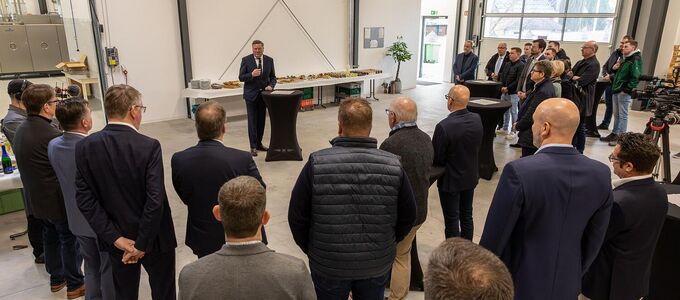
The bakery has moved. The new facility is only 150 metres down the street from the old one. Technologically, it was a leap into the future. The new facility in Bielefeld, Germany, has just been officially inaugurated. It is one of several bakeries owned by the Church and produces communion wafers for congregations in around sixty countries.
“Wafer bakery parcels to be collected at Kammerratsheide No. 8 from now on”. This is what the sign says in the window of the old bakery, directing collection and delivery drivers to the new white building next door.
Making wafer production future-proof
The production facility which had been in use since 1990 was getting on in years. “It was simply worn out and technically obsolete,” Michael Block says to explain the reason for the new building. He is the production manager of the wafer bakery. The Church was faced with the question: should we reconstruct and modernise or build a new bakery? Although the previous property had been leased, it was decided to build a new bakery on the property of one of our decommissioned churches in the immediate vicinity.
Construction began at the end of March 2023. In addition to a modern production hall and logistics area, office, storage, and social spaces were also needed. The baking machines and storage silos were already installed in November 2023.
The move to the new facility took place in January 2024 and test production began. It was high time. “Our pre-produced supply of wafers was running low,” Michael Block says.
The new facility is also sustainable: heat is supplied to the building via heat pumps and electricity is produced via a photovoltaic system on the roof. The three employees are looking forward to working in the new wafer bakery, “With new equipment and a new building the wafer bakery is optimally positioned to supply congregations in many countries with wafers for decades to come,” Michael Block says.
How flour becomes a liturgical element
Water, flour, and a little lecithin. These are the only ingredients. The batter is mixed for 45 minutes and then applied to the baking trays in thin strips. Fully automatic and software-controlled, the engraved top plate lowers itself onto the batter and ensures that the familiar letters A and Ω (alpha and omega) are visible on the wafers. The sheets then move into an electrically heated oven.
To prevent the brittle wafer sheets from breaking after baking, they are exposed to steam before they are punched out. In between, the wafers receive their characteristic three drops of red wine in the sprinkler. “We use real wine for the wafers,” Michael Block explains. “It is an everyday wine from the discounter, nothing fancy.” What is important is that it is a dark red colour so that the three drops of wine are clearly visible on the wafers.
The wafers make their way to the packing station where they are deposited in standard-sized boxes by an automatic weighing system. There are around 1,650 wafers in a box. When there are twenty boxes, the shipment is ready for dispatch. They weigh around eight kilograms and are shipped to sixty countries around the world.
Wafers for the whole world
“We need wafers for the celebration of Holy Communion. They are a very important material element of the liturgy,” District Apostle Rainer Storck says. He manages the New Apostolic Church Western Germany, to which the wafer bakery belongs. Before outsourcing production to external companies that cannot fulfil the specifications, we prefer to do it ourselves, he says. This is why there has been a wafer bakery in Bielefeld since 1919.
The biggest customer is the Democratic Republic of the Congo, the country with the largest New Apostolic population. But not all countries in which the New Apostolic Church is represented can be supplied from Bielefeld. Today there are wafer bakeries in Bengaluru in India, Lusaka in Zambia, Cape Town in South Africa, and two facilities in Uruguay.
Fixing problems
All this and more was revealed to the Church management and the tradespeople involved at the opening ceremony on 4 March, and shortly afterwards to the Apostles and guests at the Chief Apostle service in Minden, Germany. They were given a tour of the new facility and Michael Block also explained some of the challenges that have arisen. For example, the wafer sheets had to be made thicker because the wafers were too brittle when they were punched out, or the amount of batter had to be adjusted. “We have to make sure that the wafers arrive in the congregations in one piece, even after many thousands of kilometres,” Michael Block says.
It was a new experience for District Apostle Rainer Storck. “I have already dedicated many churches during my time as District Apostle, but never a wafer bakery,” he joked in his speech.






